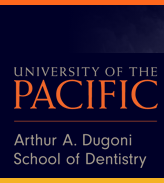Oral Health
Policies
Contents
- Who Can Submit?
- Conflict of Interest
- General Submission Rules
- Formatting Requirements
- Rights for Authors and Scholarly Commons
- Ethical Standards for Peer Review and Similarity Index Guidelines
Who Can Submit?
Anyone may submit an original article to be considered for publication in Oral Health provided he or she owns the copyright to the work being submitted or is authorized by the copyright owner or owners to submit the article. Authors are the initial owners of the copyrights to their works (an exception in the non-academic world to this might exist if the authors have, as a condition of employment, agreed to transfer copyright to their employer).
Conflict of Interest
All authors are requested to disclose any actual or potential conflict of interest including any financial, personal or other relationships with other people or organizations within three years of beginning the submitted work that could inappropriately influence, or be perceived to influence, their work.
General Submission Rules
Submitted articles cannot have been previously published, nor be forthcoming in an archival journal or book (print or electronic). Please note: "publication" in a working-paper series does not constitute prior publication. In addition, by submitting material to Oral Health, the author is stipulating that the material is not currently under review at another journal (electronic or print) and that they will not submit the material to another journal (electronic or print) until the completion of the editorial review process at Oral Health.
Formatting Requirements
See Instructions for Authors for details.
Rights for Authors and Scholarly Commons
The journal allows free access (open access) to its contents and permits authors to self-archive final accepted version of the articles on any Open Archives Initiative compliant institutional/subject-based repository.
Reproduction, posting, transmission or other distribution or use of the article or any material therein, in any medium requires credit to Scholarly Commons as copyright holder (e.g., Scholarly Commons © 2026).
General Terms and Conditions of Use
Users of the Scholarly Commons website and/or software agree not to misuse the Scholarly Commons service or software in any way.
The failure of Scholarly Commons to exercise or enforce any right or provision in the policies or the Submission Agreement does not constitute a waiver of such right or provision. If any term of the Submission Agreement or these policies is found to be invalid, the parties nevertheless agree that the court should endeavor to give effect to the parties' intentions as reflected in the provision, and the other provisions of the Submission Agreement and these policies remain in full force and effect. These policies and the Submission Agreement constitute the entire agreement between Scholarly Commons and the Author(s) regarding submission of the Article.
Ethical Standards for Peer Review and Similarity Index Guidelines
At Oral Health, we uphold the highest standards of integrity and confidentiality throughout the peer review process. Peer reviewers are expected to maintain strict confidentiality regarding all aspects of the review process. Details of submitted manuscripts, including content, communications, and review discussions, must not be disclosed at any stage, whether during or after the review process, except for information officially released by the journal.
The use of Generative Artificial Intelligence (GenAI) tools, including ChatGPT, Google Bard, Microsoft Copilot, Claude, Gemini, Mistral, and similar large language model-based platforms, must be carefully managed to protect confidentiality, privacy, and copyright integrity.
For authors: If Artificial Intelligence (AI) has been used in the development of any portion of a manuscript, its use must be transparently and thoroughly documented in the Methods section, a disclosure statement, or the Acknowledgements section, as appropriate. However, AI tools used strictly for spelling, grammar, or general editing purposes do not require disclosure.
For peer reviewers: Under no circumstances should any part of a manuscript (including text, figures, or tables) be uploaded to GenAI tools. If AI-assisted tools are used to refine a peer review report, this must be explicitly disclosed.
Similarity Threshold: To maintain the originality and integrity of all published work, the similarity index of submitted manuscripts must not exceed 20%, as assessed by plagiarism detection software. Manuscripts exceeding this threshold will not be sent for further review, and authors may either be asked to revise or provide clarification before the evaluation process can proceed, or the submission may be rejected.
By adhering to these guidelines, we strive to uphold academic integrity, protect author rights, and ensure the highest quality of scholarly publishing.

